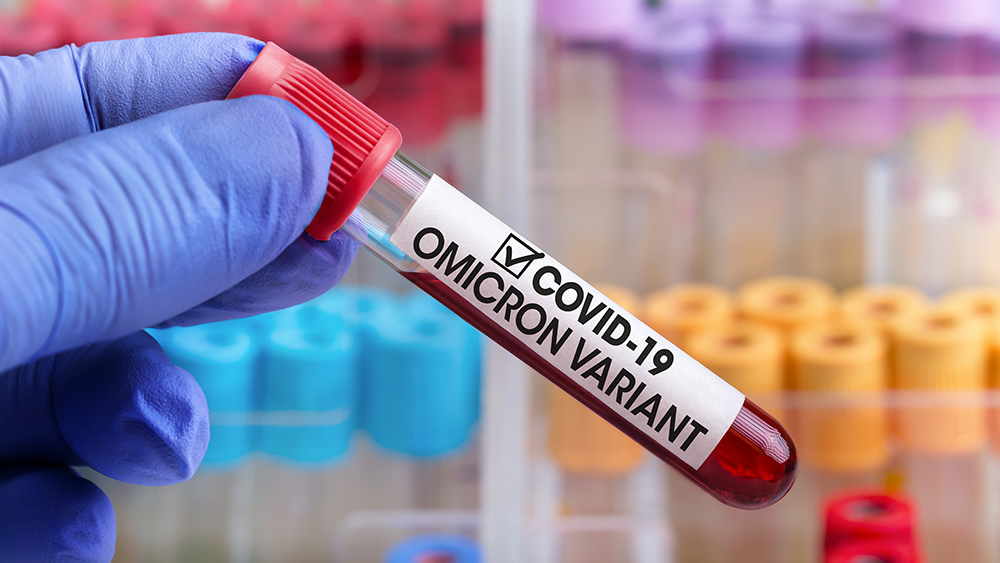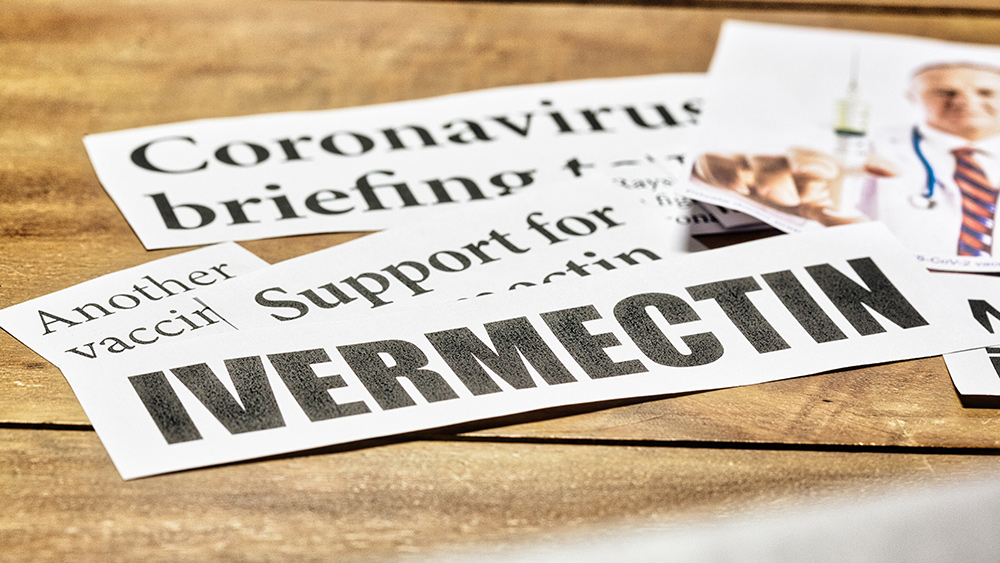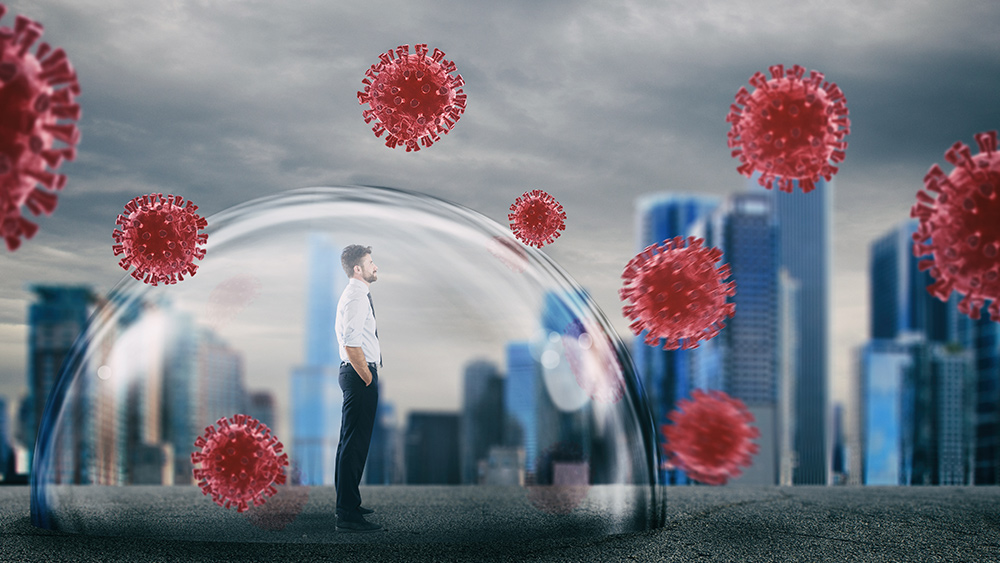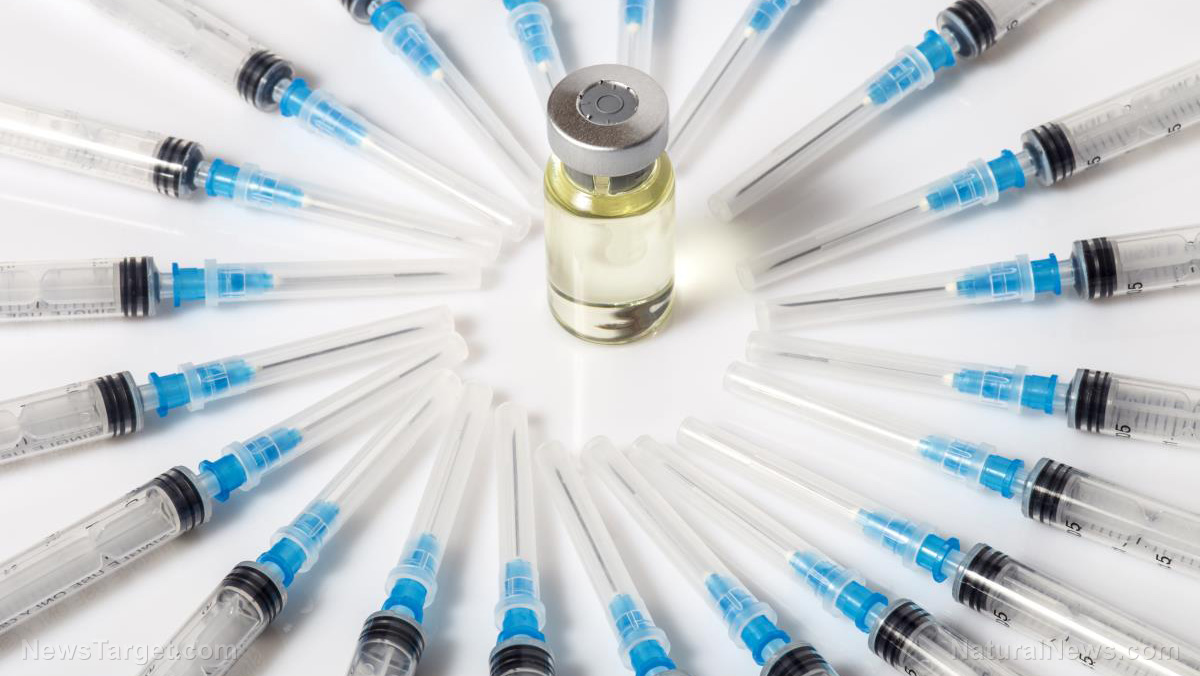Researchers launch study to explore connection between irregular menstruations and coronavirus vaccines
04/24/2021 / By Arsenio Toledo

Two researchers have launched a study to determine if Wuhan coronavirus (COVID-19) vaccines cause abnormal menstruations after hundreds of women noticed irregularities.
The research is being conducted by Dr. Kathryn Clancy, an associate professor of anthropology at the University of Illinois Urbana-Champaign and Dr. Katherine Lee, a postdoctoral scholar in the public health sciences division of the Washington University School of Medicine in St. Louis, Missouri.
The two women were inspired to study this phenomenon after receiving their coronavirus vaccines earlier this year. Both women noticed that aside from the side effects they expected to experience from the shot, such as pain at the injection site, their menstrual cycles were also affected.
Both of their periods had either come earlier than usual, felt significantly heavier or just appeared very irregular.
Clancy first mentioned the possibility that the vaccines affected menstrual cycles after she experienced an abnormal period in late Feb. 2021, after she received her first dose of the Moderna coronavirus vaccine. (Related: WHO warns against administering Moderna coronavirus vaccine to pregnant women.)
“I’m curious whether other menstruators have noticed changes too?” she wrote on her personal Twitter account. “I’m a week and a half out from dose 1 of Moderna, got my period maybe a day or so early, and am gushing like I’m in my 20s again.”
She wrote an update a day later by saying that she was swapping out overnight sanitary pads several times a day because of her heavy flow. “Typical for me at this time is maybe one or two regular pads.”
Clancy’s tweets went viral, and she began receiving hundreds of replies from other women who noticed irregularities with their own menstrual cycles after receiving the coronavirus vaccine. The responses she got inspired her and Lee to conduct a formal study on the matter.
Thousands of women speak up about irregular menstruations after getting vaccinated
Clancy and Lee are currently running a survey to catalog the menstrual experiences women have had after receiving the COVID-19 vaccine. As of Monday, April 19, Lee said that more than 25,000 people have answered the survey. Clancy said she was surprised to find a lot of people describing very similar experiences.
One of the people that spoke to Clancy and Lee was Katy Fyksen, a 43-year-old woman from Plainfield, Illinois. She experienced an unusually heavy period several days after she received the second dose of her Moderna coronavirus vaccine. She did not consider that there might be a link until she heard about Clancy’s own experiences.
Furthermore, she was not expecting a period because she hadn’t had one in over a year and a half because of her intrauterine device.
“I didn’t really think that it was anything until I saw that someone had said that, that it might’ve been a symptom or a side effect of the vaccine. It was like, ‘Oh, that’s interesting,'” she said.
“I haven’t had a period in years and I’m about three weeks out of my second shot and I’m gushing blood,” wrote one person. “I freaked out but now I see I’m not the only one. This is crazy.”
“Two weeks exactly after shot number two, my cycle started 12 days earlier and heavier than it’s been for the last three years,” wrote another woman.
Lee said their study will look at the trends, but its limited scope will be unable to determine cause and effect.
“Our survey cannot tell us anything about prevalence or the number of people who are affected,” explained Lee. “What we can do is look for associations and trends that help us direct whatever the next study would be.”
Medical community divided over whether vaccines can affect menstruation
Dr. Julie Levitt, an OB-GYN working for Northwestern Medicine, said several patients have already come to her with concerns related to their menstruations after getting the coronavirus vaccines. According to her, the COVID-19 vaccine could be creating a hormonal spike that could trigger bleeding.
“A hormone rises, it goes down, you bleed a withdrawal bleed,” said Levitt. She warned that people who experience this should contact their trusted physicians, especially if it continues after a few weeks following the administration of the vaccine.
Dr. Rakhi Shah, another OB-GYN working for Northwestern Medicine, disagrees. She does not believe the COVID-19 vaccines could affect menstruation.
“I think that there’s really no biological mechanism that is plausible in terms of how that could be possible,” Shah argued. “I think that potentially people are having normal menstrual pain, plus the aches and pains that are associated with post-vaccine, and maybe combining all of that together and associating it.”
Dr. Ranit Mishori, a professor of family medicine at Georgetown University, is similarly skeptical of the connection but is supportive of the study.
“I really salute the person who is trying to study this,” said Mishori. “But at this point, there is no rigorous data that shows this is a phenomenon. There is no strong data that this is associated with the vaccine.”
Mishori said a survey is a good first step to further studying the link between coronavirus vaccines and irregular menstruations.
Learn more about the potentially dangerous side effects of the coronavirus vaccines by reading the latest articles at Vaccines.news.
Sources include:
Tagged Under: adverse effects, coronavirus, coronavirus vaccines, covid-19, menstruation, periods, research, side effects, Vaccine dangers, vaccine injury, vaccines, women's health
RECENT NEWS & ARTICLES
COPYRIGHT © 2017 RESEARCH NEWS





















